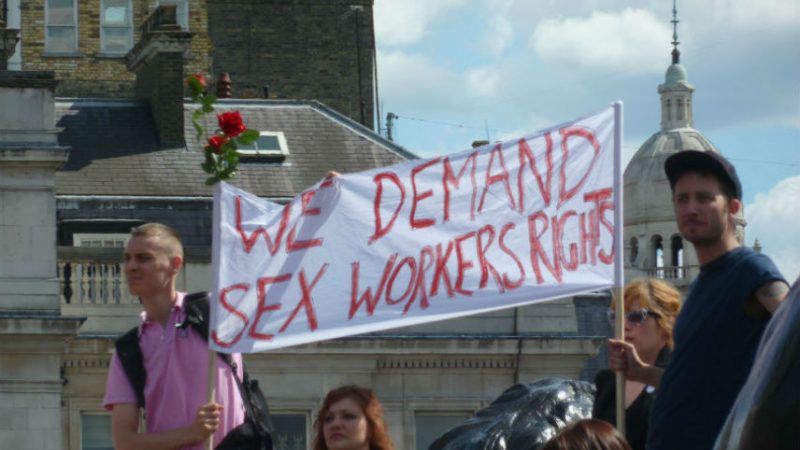Sex Workers Meet in Los Angeles To Draft Statement of Principles
A new manifesto calls for sex-worker rights.

In late June, members and supporters of Desiree Alliance, a sex work advocacy organization, gathered in the Los Angeles office of the American Civil Liberties Union (ACLU) to begin organizing for the legalization of sex work. The event featured nearly a dozen sex workers, including adult actress and Los Angeles-based sex work activist, Siouxsie Q.
Attendees at the meeting drafted a manifesto called the National Sex Worker Anti-Criminalization Principles, which author and escort Maggie McNeill described as a document designed to "provide a working template for a national platform" for sex-worker rights.
In the one-page manifesto, they offer recommendations for both sex workers and those not in the profession. Recommendations include respecting the expertise and experience of sex workers and allowing sex workers to maintain their own health. The manifesto also demands that sex workers be granted certain rights such as choosing their own sexual relationships and guaranteeing full access to social, medical, and justice services without discrimination.
"We're national voices, and we came together with a collective mission to put forth a statement of how we are to be interacted with," said Cris Sardina, director of the Desiree Alliance. "And that was accomplished today."
Sex work advocates hope their manifesto can tackle a host of issues, including concerns about FOSTA/SESTA legislation, which restricts their ability to advertise their services online; building a coalition of former and current sex workers to speak of their experiences; and pushing back against anti-sex work advocates conflating consensual sex work with "sex trafficking."
There are clear parallels between the statement and the Denver Principles, published nearly three decades ago by HIV-positive gay men organizing a response to the AIDS crisis. The Denver Principles offered recommendations such as supporting HIV-positive people in the struggle against firings, evictions, and stigmatization while pushing for privacy rights and equal access to healthcare. Many LGBT scholars and activists cite the Denver Principles as a major blow to the stigmatization of persons with HIV/AIDS.


Show Comments (36)